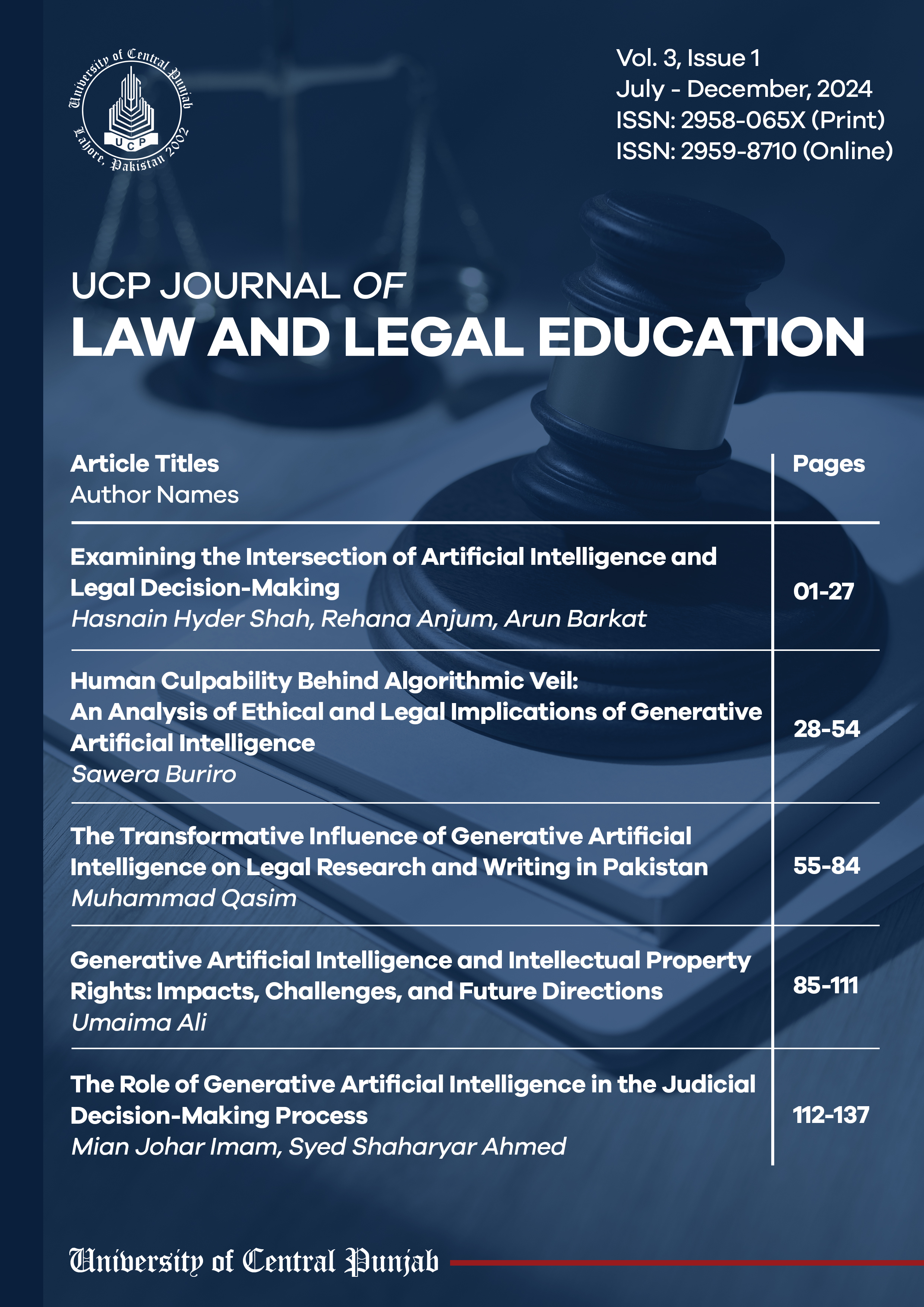Generative Artificial Intelligence and Intellectual Property Rights: Impacts, Challenges, and Future Directions
DOI:
https://doi.org/10.24312/ucp-jlle.03.01.290Keywords:
AI, Intellectual Property, Innovation, Protection of Intellectual Property RightsAbstract
In the world of technology, rapid advancement of Artificial Intelligence (AI) technology has brought significant changes across various industries, including the domain of inventions and creative endeavours. However, the current IP legislative frameworks are lagging behind in the protection of AI-generated content and methods to differentiate between human-created and AI-generated content. This paper attempts to portray the impact of AI-generated content of IP laws protection to the creation of AI innovations, and how human creation and formation can be balanced against AI innovation. The paper also discusses the ethical implications and coverage issues that arise from the integration of AI into the field of intellectual property, offering insights into potential legal reforms. Through this thorough analysis, the paper aims to provide a nuanced understanding of the complex relationship between AI and IP rights, looking ahead to future legal tendencies and offering recommendations for lawmakers and practitioners. A comparative evaluation of global jurisprudence reveals the range in legal responses to these emerging challenges. AI's involvement is putting increasing strain on current IP laws, which favour human creativity and need for updated legislation. Fostering innovation while preserving legal clarity, equity, and ethical accountability requires a well-rounded strategy.
Downloads
Published
Issue
Section
License
Copyright (c) 2025 UCP Journal of Law & Legal Education

This work is licensed under a Creative Commons Attribution-NonCommercial 4.0 International License.




